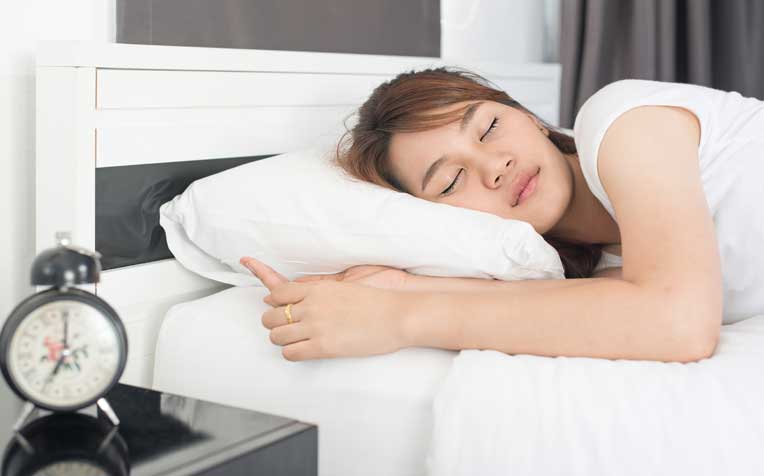1. Shift work and frequent air travel disrupt the body's internal clock, affecting sleep quality and overall health.
2. Appropriately timed exposure to light and darkness can help reset the body's internal clock for shift workers.
3. Research on light therapy may lead to improved methods for treating sleep disorders and optimizing drug delivery timing.

Survive the graveyard shift by taking a nap before work to make it easier to stay awake during the night.
How light can affect the quality of sleep and what it means for shift workers.
Sleep deprived
Most of us struggle to get the recommended eight hours of sleep at night. But for shift workers and frequent air travellers, night-time sleep is a luxury that they do not have. One in seven Singaporeans work night shifts, according to recent Ministry of Manpower figures.
The body clock
According to Assistant Professor Joshua Gooley, Head of Duke-NUS Graduate Medical School Singapore’s Chronobiology and Sleep Laboratory, shift workers and frequent long-haul air travellers are vulnerable to sleep problems as the body’s internal rhythm is disrupted. “Normally, the body’s internal clock is synchronised by the daily cycle of sunlight and darkness. This sends out strong sleep signals to ensure that natural sleep occurs in the night. So for the body to adapt to work at night, the internal clock must be reset to match the shift schedule,” he said.
Shedding light
Research has shown that appropriately timed exposure to light and darkness can help the body’s clock adjust to shift work, such as exposure to bright light during the night shift and darkness immediately after work. Prof Gooley is studying this connection in greater detail. His research, the first of its kind in Singapore, delves deeper to examine the precise properties of artificial light that can be used to reset the body’s internal clock. His research team is testing if intermittent light (i.e. when the lights are turned on and off repeatedly) is better than continuous light at resetting the body’s clock.
“Light therapy can also be used to alleviate depressive symptoms associated with some psychiatric disorders. By understanding how light can drive these responses, we hope to develop better methods and devices for delivering light therapy to patients.” With growing evidence that a long history of shift workers may heighten a person’s relative risk for obesity, cardiovascular disease, gastrointestinal disorders, and even some cancers, Prof Gooley’s research can have far-reaching implications. “We are interested in optimising the timing of drug delivery as it is well-established that the efficacy and toxicity of many drugs vary with the time of day,”said Prof Gooley.
Jet lag - facts or myths?
- Expose the back of your knees to light to avoid jet lag.
Answer: Myth – The light-sensitive cells which communicate with the body’s internal clock are located in the eyes.
- Viagra lets you recover faster with jet lag.
Answer: To be determined – Studies have shown it helps hamsters to adjust to jet lag, but there are none to prove the same effect on humans.
- Melatonin can help prevent jet lag.
Answer: Fact – This hormone is thought to be the body’s internal signal of darkness and is synthesised at night. When a melatonin pill is taken in the morning by a person travelling westwards, it fools the body into thinking that it isn’t morning yet. The opposite works for people going eastwards, except it must be taken at night.
Surviving the graveyard shift
- Take a nap before work to make it easier to stay awake during the night.
- Keep to a regular sleep-wake schedule instead of taking irregular naps.
- Avoid caffeinated drinks at night as they can disrupt daytime sleep.
- Sleep in a quiet and dark room.
- Use earplugs to eliminate noise, and heavy curtains to block daytime light.
Ref: V10
Contributed by


















 Get it on Google Play
Get it on Google Play